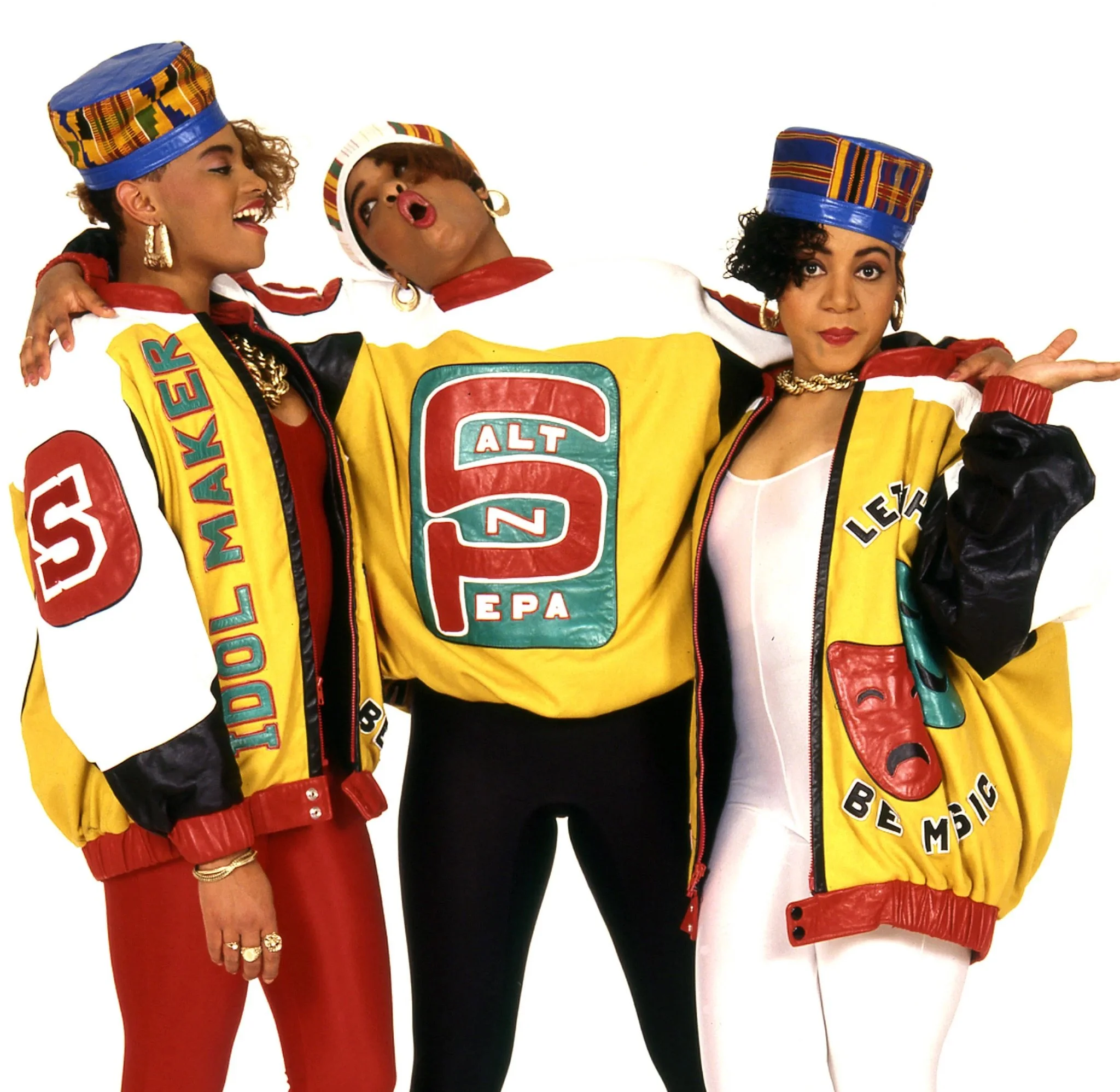Four Female Rappers Who Helped Shape Hip-Hop Culture
Hip-hop culture would not be what it is today without the efforts of these four legendary female rappers.
By Bianca Thompson
In 1973, hip-hop rose in the South Bronx as a creative force for Black Americans to free themselves from economic depression and structural barriers. The cultural movement is defined by four elements: deejaying, emceeing (rapping), graffiti and B-boying (breakdancing). What originated as a male-dominated industry has now shifted towards a liberated feminist movement, thanks to female rappers' independent voices. Hip-hop culture would not be what it is today without the efforts of these four legendary female rappers.
Salt-N-Pepa (1986)
Image via Vogue
Cherly ‘Salt’ James, Sandy ‘Pepa’ Denton, and DJ Spinderella formed the first all-female rap group, known as Salt-N-Pepa. Their debut album Hot, Cool & Vicious premiered in 1986. These female rappers created a path for women in hip-hop and were one of the first rap groups to cross over to mainstream pop, extending hip-hop’s influence worldwide. Salt-N-Pepa were the first women to win a Grammy for Best Performance By Duo or Group in 1995, and remain one of the best-selling rap acts of all time. Their pro-feminist lyrics, sexual liberation and groundbreaking efforts are what make their contribution to hip-hop culture so significant.
Queen Latifah (1988)
Image via Pinterest
Queen Latifah, born Dana Elaine Owens, released her first single Wrath of My Madness in 1988. She was one of the earliest female rappers in hip-hop and made a name for herself through her socially-conscious and uplifting lyricism. The Living Single and Set it Off star motivated other women and rappers to explore other realms of the entertainment industry, like acting. Addressing Black feminist issues like domestic violence, street harassment and the need for unity between young women is what won her a Grammy for Best Rap Solo Performance in 1995, and helped contribute to her influential role in hip-hop culture.
Lauryn Hill (1994)
Image via Rolling Stone
Lauryn Hill is a hip-hop mogul who was first introduced to us on The Fugees 1994 album, Blunted on Reality. Hill later pursued a solo career, continuing to merge neo-soul with rap and Black femininity. Recognized as one of hip-hop’s best rappers, this renowned artist reclaimed female power in hip-hop with the release of her 1998 album The Miseducation of Lauryn Hill. With singles like “Doo Wop (That Thing),” “Everything is Everything,” “Lost Ones,” and “Ex-Factor,” Hill fought against sexism while touching on themes of motherhood, spirituality, love, and feminine power. Her narrative of womanhood and bold feminism is what made her a legendary female rapper in society.
Lil’ Kim (1996)
Image via Dazed
Brooklyn-native Lil’ Kim, born Kimberly Denise Jones, is a female pioneer of hip-hop culture. Her feminine style and tough demeanor heavily influenced the way women in hip-hop carried themselves. Nipple pasties, oversized sunglasses, and colorful wigs are just a few of her standout pieces. Her 1996 debut album, Hardcore, changed the rap game. Lil’ Kim merged bold and sexy imagery with provocative language to create a safe space for female empowerment within hip-hop. Singles like “Queen B****,” “Suck My D***,” “Crush on You,” and “Don’t Mess With Me,” helped combat misogyny, promote sexual freedom, and demand respect for women in the industry. Lil’ Kim’s raw approach and hunger to take over the rap game is what paved the way for modern female rappers like Nicki Minaj, Cardi B, and Megan Thee Stallion. Thus, establishing her as one of hip-hop’s most iconic female rappers.
Missy Elliot (1997)
Image via VIBE.com
Missy ‘Misdemeanor’ Elliot is a powerful feminist-legacy. After several collaborations and appearances, she began her solo career with the 1997 debut album Supa Dupa Fly. Throughout her impressive 25-year-career, she has stood for gender equality, emphasizing that women are just as important and powerful as men. Missy Elliot taught young women that being unapologetically outspoken is a positive thing. She’s a strong feminist voice who heavily influenced body and sex positivity within the hip-hop community while promoting sisterhood.
Known for rocking parachute pants and oversized clothing, Missy Elliot has proven a woman can still be sexy while displaying both feminine and masculine traits. Her fearlessness and originality broke down doors for the modern canon of female rap artists. Her devotion to her craft, limitless choreography and creative visuals for songs like “Pass that Dutch,” “Work It,” and “Get Your Freak On,” have contributed to her success. Missy Elliot has sold 30 million records, won five Grammys, and made history as the first female hip-hop artist and third rapper ever to be inducted into the Songwriters Hall of Fame. It’s very clear that hip-hop would not be what it is today without her presence.





